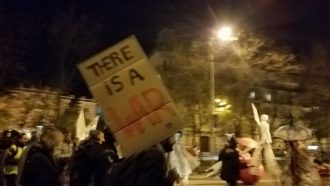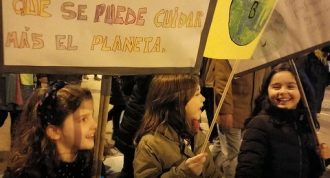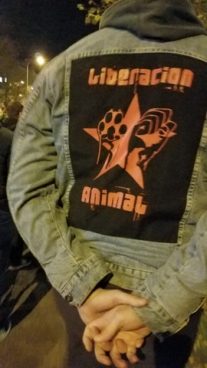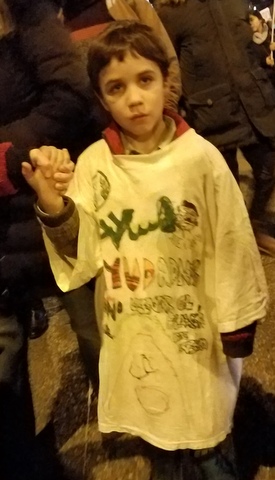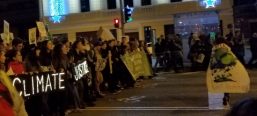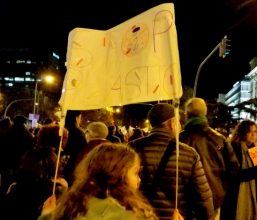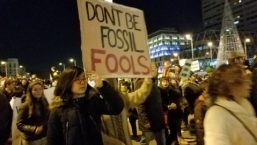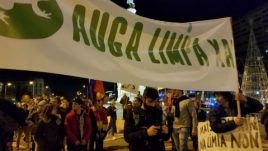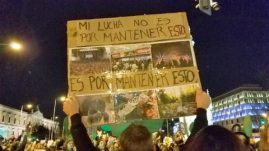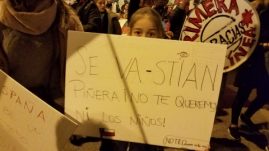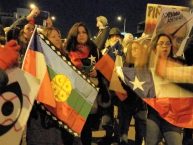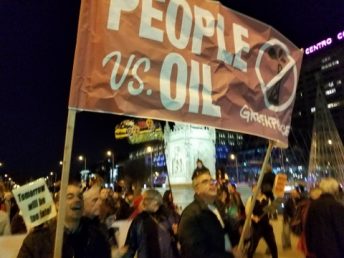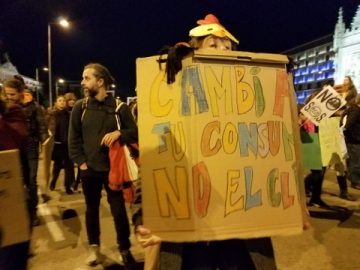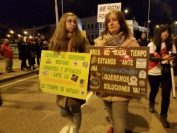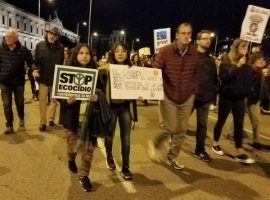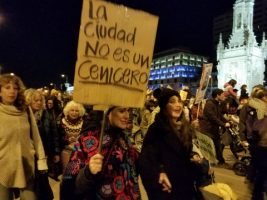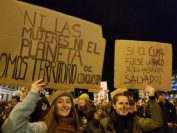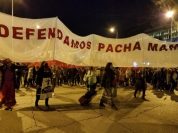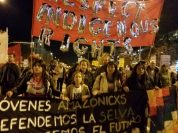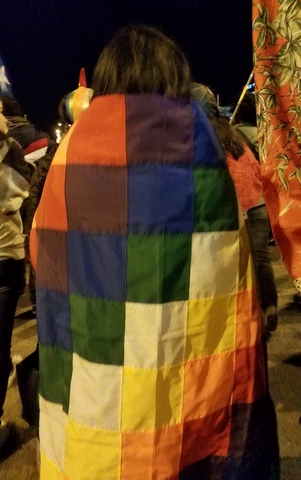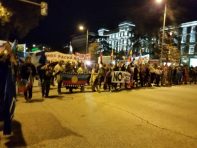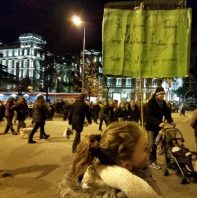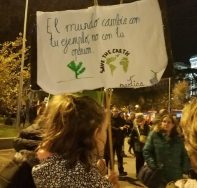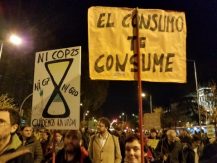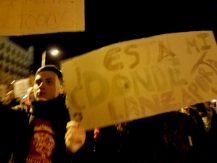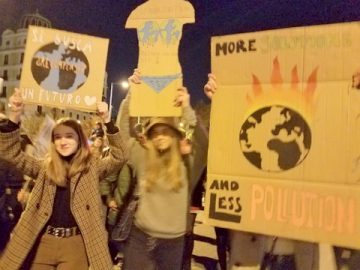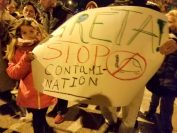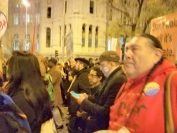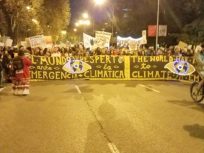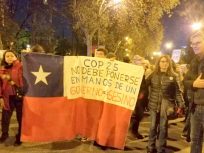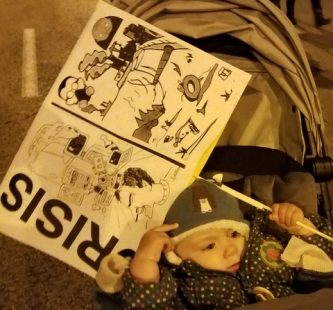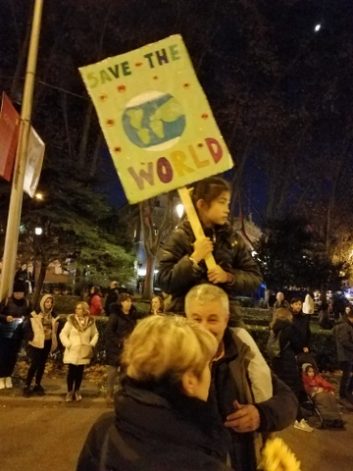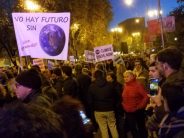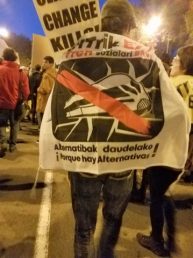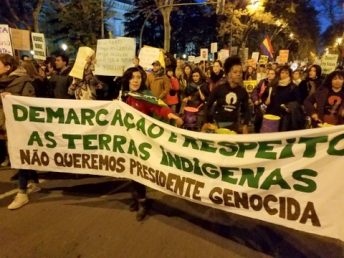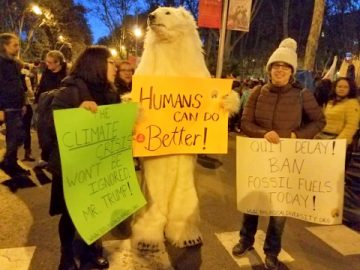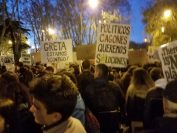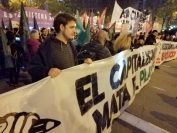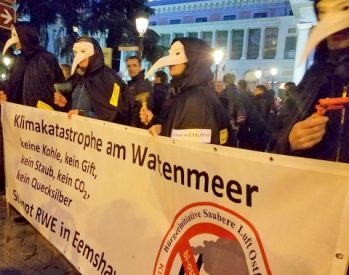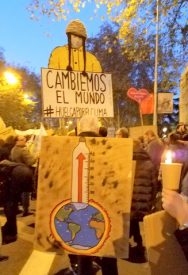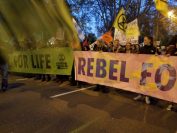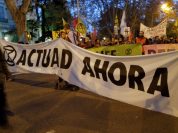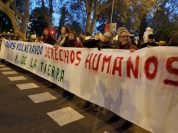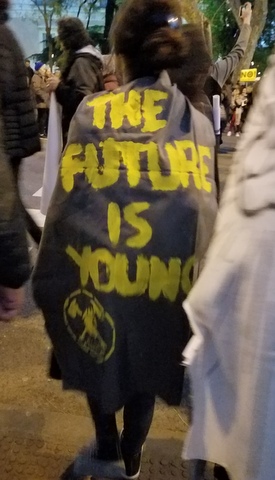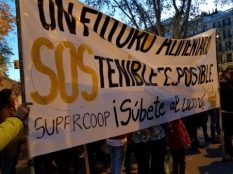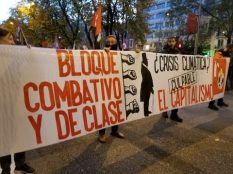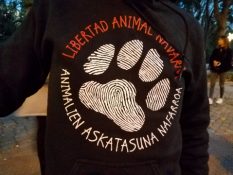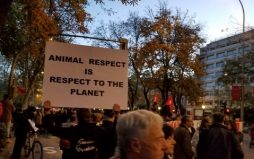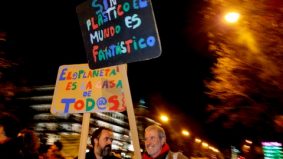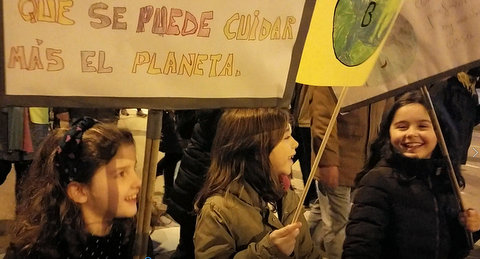 MADRID – Over two hundred thousand marchers pulled together at the last minute to take the streets of downtown Madrid to bring their message to policymakers at the climate talks COP 25.
MADRID – Over two hundred thousand marchers pulled together at the last minute to take the streets of downtown Madrid to bring their message to policymakers at the climate talks COP 25.
Originally planned for Santiago, Chile, the annual climate summit was pulled together in Madrid despite only having a month to plan for the tens of thousand participants. The government of Chile reneged on its commitment to hold the event because of ongoing social movement activity in the street, thereby giving Spain the opportunity. The venue location change was announced on November 1. Companion marches took place in Santiago, as they did globally on the regularly held Friday school strikes.
An eyeball estimation showed that this year’s march saw mostly young people, and more very young people than in earlier marches. The lead of the march left the starting point chanting “No Human Being is Illegal” surrounded by a human chain and about a dozen police vans.
Among the children marching were nine-year old Sofia from Madrid who marched with one of her classmates. Together they said they’ve known about the climate crisis since they were born, “You [as adults] can save the earth and safeguard our planet. All you have to do is do right by nature. Nature must thrive and we have to protect her. And without one more extinction!”
Ten-year old Noai’s sign read “STOP PLASTICS, “How can people throw things away on the ground, contaminating earth while knowing all we have is this planet? If we waste it, we don’t have another.” Her message to the public, “We have to remember that this planet is the only one we have and we must take care of it.”
Marta carried a sign that in Spanish read STOP POLLUTION on one side and SAVE THE FORESTS on the other, “It doesn’t sit well with me that there is climate change, because I love animals.” The nine year old said that in school she’s learning about recycling.
Violeta is nine and said she marched because, “I wanted to change climate change and to have a very clean earth.” Cleanliness to 10-year old Mena meant curbing plastic use, “We cant use plastic because we are using bags for plastic and we can do other things and not use plastic. Her solution: “We can use cardboard and glass.”
A group from Peru carried the Wiphala indigenous flag while marching, “We have to mitigate and we need to have large nations accompany us like the US , Japan, China, and other contaminating countries, “In my country, culture is being affected, and the damage is huge.”
When asked about Denver’s Newmont Mining damage to the region, the response was, “They are contaminating the water.” When asked if the situation had improved over the years: “No, it’s gotten worse. When they pollute, they are not abiding by regulations. There’s an international convention, the ILO and each time they are in violation of it.”
ILO 169, International Labor Organization Convention, was adopted in 1989 and is a binding agreement that protects the rights of Indigenous and Tribal Peoples including the right to free, prior, and informed consent before outside interference with natural resources. Often international corporations stop at the “consult” part of the Convention prior to attempting deforestation or resource extraction, leading to objection by Indigenous keepers of the land, who refuse to allow destruction of their territories.
Final message to Denverites: “Remain observant that the corporation asks for prior consent that Peru requests. Our government is part of the problem when they collaborate with these businesses without any benefit to us….full benefits for the corporations, but they don’t collaborate with the landowners which is us.”
“Animal Respect is Respect to the Planet” read the sign carried by Fran, a member of the Animal Association Libertad Animal Navarra from the province Navarra in Spain, “My sign is making the connection between animals and the deterioration of the planet. Animal consumption is contributing to double the contamination that transportation does. So about half of contamination, basically is due to animal consumption. So moving away from eating animals little by little in favor of eating vegetables is what I believe will most advance the planet’s health.”
Tom Goldtooth (Dine’ and Dakota), Executive Director of Indigenous Environmental Network walked at the head of the march in a group that painted their faces with the recognizable NO REDD symbol which was also visible on their signs.
REDD, also known as the Reduced Emissions from Deforestation and Forest Degradation is generally viewed on its face as a favorable program to curb global emissions by maintaining intact forests in the global South. The initiative has undergone several various iterations including REDD+, REDD++ and even Indigenous REDD. But those critical of the program say that the program instead violates the rights of Indigenous Peoples and is a precursor to a land grab.
“We have always been up against it,” said Goldtooth as he lined up for the march, “Indigenous Environmental Network is building a movement of Indigenous peoples of the north and the south standing with the social movements as well to denounce climate capitalism and its tie to neoliberalism, imperialism, and white supremacy. We have to start defending ourselves by going back to our land. This is a revolution of our people throughout the world standing up against oppression and repression.”
When asked about the ongoing pressure by the UN for Indigenous communities to adopt REDD programs, Goldtooth said,
“Well that’s the system that we have to confront. That’s the economics and the globalization working together at the expense, not only at the expense of our land, but at the expense of our Mother Earth and our Father Sky. They don’t care [the UN]. They’re commodifying nature, the financialization of nature. Nature is capital. People of the world need to really wake up and look at the details of what’s happening.”
Goldtooth referred to the documented cases that have occurred under REDD programs that have resulted in land theft, forced evictions, the prevention of access to traditional lands, and the threat to centuries-long agricultural practices, “It’s privatization by oligarchies and the banks of the world right in front of our eyes. They’re even using a new rebrand of REDD – “nature based solutions”. They’re going to be taking, they say, half of the world’s forests becoming privatized. That’s what’s happening. Article 6 is about carbon markets. And it has to be stopped. And we’re gonna stop it.”
When asked about how: “Just what you see here. A lot of people on the streets don’t know about the details so we’re doing popular education. We’re starting to do Train the Trainers on these issues of carbon pricing and so we’re building that movement right now.”
Click on photos to enlarge:
